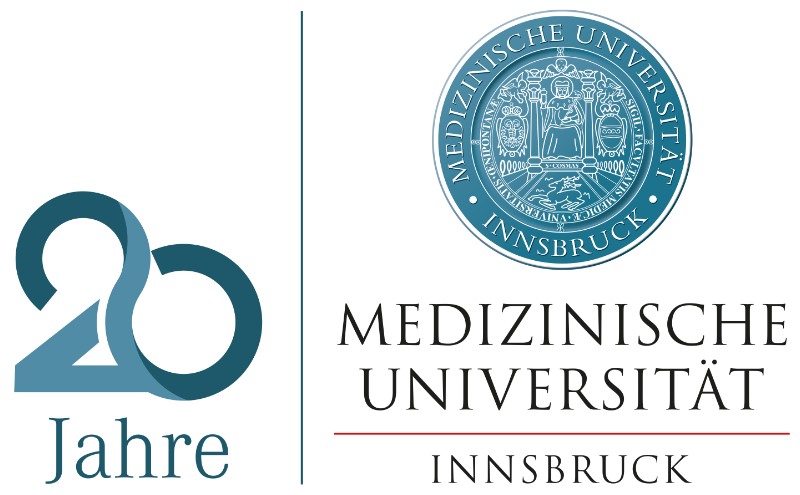We are looking for a motivated and dedicated member of staff to support our team.
University Assistant (Postdoc)
Institute for Medical Biochemistry,
Beschäftigungsausmaß 40 Stunden/Woche,
40 hours/week, financed by third parties, starting as soon as possible, limited to 3 years
Your scope of tasks
You will be responsible for several tasks within the two related European research projects “Accessible Innovative Methods for the Safety & Sustainability Assessment of Chemicals & Materials (CHIASMA)” and “Integrated Models for the Development and Assessment of High Impact Chemicals and Materials (INSIGHT)”. Your tasks are centered around a desktop-based development of innovative concepts and new data based case studies for regulatory toxicology, in specific for the regulatory use of Adverse Outcome Pathways (AOPs) and Non Animal Methods (NAMs), the construction of NAM based Integrated Approaches to Testing and Assessment (IATAs) for toxicology and its extension towards life-cycle-assessment and socio-economic impact.
Your challenge will be to follow and co-design the science, which is being developed by the partners of the CHIASMA and INSIGHT project, such that the results can be used within current regulatory concepts and within the evolution or paradigm-change thereof that you will suggest and design. Importantly, you will be responsible for presenting and discussing the new concepts and case studies within regulatory toxicology fora, such as selected OECD Expert Groups and iterate these discussions with the CHIASMA and INSIGHT partners.
The CHIASMA’s Central Objective is to further develop and validate innovative NAMs for the assessment of toxicological effects of chemicals and materials on human external and internal barriers, brain, liver, kidney and some reproductive functions. Moreover, CHIASMA will innovate the concepts for NAM based next generation safety and risk assessment (NGRA) and for safe and sustainable by design (SSbD), which includes life-cycle assessment.
INSIGHT will expand the mechanistic toxicological AOP and IATA concept towards a next generation SSbD assessment procedure in which besides health and environmental impacts social and economic impacts are evaluated and integrated in a mechanistic computational modelling approach.
You will be supported by a small, growing team of regulatory scientists within the Institute for Medical Biochemistry at the Medical University of Innsbruck and you may help to further evolve this new field as a bridge between science and regulation of chemicals beyond the specific CHIASMA and INSIGHT projects.
Your tasks will include
- improve the currently evolving regulatory science concepts for the NGRA and the SSbD frameworks and elaborate possible integrations and innovations thereof
- co-design the decision support system for the INSIGHT´s mechanistic, computational SSbD assessment procedure
- apply the CHIASMA and INSIGHT innovated NGRA and SSbD framework to new data-sets as case-studies
- develop official proposals for discussing and further elaborating the CHIASMA and INSIGHT concepts and case studies within regulatory fora, such as OECD Expert Groups
- communicate in/output between regulatory fora and the CHIASMA and INSIGHT partners for improved scientific and regulatory understanding and progress
- support characterization of NAMs and documentation of the case studies using available regulatory, i.a. OECD formats
- actively participate in CHIASMA and INSIGHT project meetings
- present research results at congresses and (co)author peer reviewed publications
We are looking forward to
- completed relevant PhD or doctoral studies
- affinity to desktop based work, including systematic literature reviews, computational data analysis & integration, variability and uncertainty characterisation
- basic understanding of present regulatory toxicology concepts
- basic understanding of AOPs, NAM based IATAs and SSbD frameworks as the newly evolving concepts for regulatory science
- interest in fostering the use of non-animal methods
- interest in work at the regulatory-science interface
- creativity for “out-of-the-box” thinking
- good communication skills (incl. written reporting, scientific presentation) to interact with all stakeholders, i.e. federal regulators, academia, industry, NGOs, policy-makers
- able and willing to work independently in the context of the research project and to collaborate with different European partners
- result and solution-oriented working
- precise, enterprising and stress resistant
- excellent knowledge of English
Our offer
Located in the centre of Tyrol, we offer excellent conditions at an attractive location, a value-oriented working environment, exciting and varied activities, the opportunity for professional and personal development as well as numerous (voluntary) additional company benefits.
-
- Independent work with international project partners in a large European project in a currently dynamically developing, socially highly relevant scientific field of work
- Collaboration in a small, growing team of scientists for the interface between science and regulation, as well as the opportunity to further develop this new field as a bridge between science and regulation of chemicals by means of project acquisition
- Participation in national and international congresses
For the intended job group B1, GH 3, the minimum salary according to the collective agreement is currently € 66,532.20 gross per year for a 40-hour week and may be increased on the basis of other salary components associated with the special features of the job.
An employment relationship with less than 40 hours per week would also be possible.
Application process
Please send your application (incl. CV, letter of motivation, list of publications) digitally (as pdf files) by 31.10.2024 to: martin.paparella@i-med.ac.at, cc: ishita.virmani@i-med.ac.at
Medical University Innsbruck
Institute for Medical Biochemistry
Innrain 80, 6020 Innsbruck, Austria
Head of Institute: Univ.- Prof. Dr. Ludger Hengst
Project manager and supervisor: MUI Regulatory Science Group, Dr. Martin Paparella, MAS(Tox), ERT
https://www.researchgate.net/profile/Martin-Paparella
web: https://i-med.ac.at/universitaet/index.html.en
Equal opportunities for all!
We offer our employees a fair working environment in which they can develop individually. We focus on diversity and equal opportunities, including by deliberately increasing the proportion of women in all professional groups, especially in management positions. We expressly encourage qualified women to apply. In order to support working parents, we offer flexible working time models and childcare facilities.


